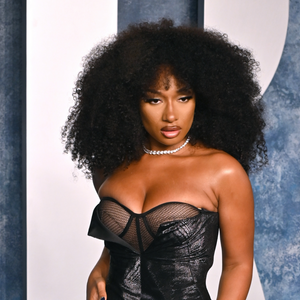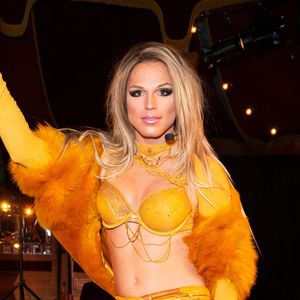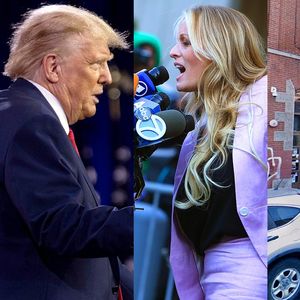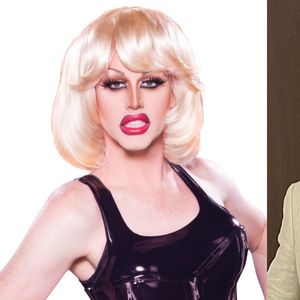CONTACTStaffCAREER OPPORTUNITIESADVERTISE WITH USPRIVACY POLICYPRIVACY PREFERENCESTERMS OF USELEGAL NOTICE
© 2024 Pride Publishing Inc.
All Rights reserved
All Rights reserved
By continuing to use our site, you agree to our Private Policy and Terms of Use.
According to top military analysts, there was no adverse impact on combat effectiveness when military forces with conflicting policies on openly gay troops fought together in Iraq. In interviews conducted by the Center for the Study of Sexual Minorities in the Military, a think tank at the University of California, Santa Barbara, military experts suggested that when U.S. units, which bar openly gay soldiers for fear of undermining unit cohesion, fought with British units, which allow openly gay soldiers, there were no apparent problems. Personnel from both armies were exchanged in several instances, according to Lt. Gen. Gregory S. Newbold, a vice president at the Potomac Institute. And in preparation for the coalition fighting, the two forces trained together before going into combat. "If you're going to provide combat forces [for each other]," he explained, "you would absolutely want to train together, and generally we do that." He added that American and British forces "have trained together a great deal, so that relationship is a very easy one to carry into combat." Glenn Truitt, a former U.S. submarine officer, said it was no surprise to him that American soldiers could work effectively with the gay-friendly British military. He knew of gay soldiers on his command, and he said their professionalism rose to even higher levels than that of straight soldiers. "The homosexual men I knew in the military were much more professional about their sexuality than the heterosexuals," he said, "if only because they had to be" to gain full acceptance. Maj. Gen. Bill Nash (Ret.), a senior fellow at the Council on Foreign Relations, added that "most of the issues about women and gays take place when the bullets aren't flying. When you're fighting, you've got other things on your mind." He seemed to imply that problems with integrating gays and lesbians reflected more generalized social concerns, not performance ability. "There are a lot of disciplinary issues that, unless they are directly related to combat performance, are not addressed on the battlefield," he said. Recently U.S. representative Martin Meehan (D-Mass.) argued that the success of coalition fighting in Iraq is further proof that the American military's antigay policy is unnecessary. "The adherents to the ban have never been able to produce any evidence that allowing gay men and lesbians to serve openly and honorably would harm the effectiveness of our military," said Meehan, a senior member of the House Armed Services Committee and a leading critic of the military's "don't ask, don't tell" policy. "The Iraq war demonstrates that the morale and cohesion of our forces is simply not affected by the presence of openly gay soldiers." Twenty four nations, including the United Kingdom, allow gays to serve openly.
Want more breaking equality news & trending entertainment stories?
Check out our NEW 24/7 streaming service: the Advocate Channel!
Download the Advocate Channel App for your mobile phone and your favorite streaming device!
From our Sponsors
Most Popular
Here Are Our 2024 Election Predictions. Will They Come True?
November 07 2023 1:46 PM
Meet all 37 of the queer women in this season's WNBA
April 17 2024 11:24 AM
17 Celebs Who Are Out & Proud of Their Trans & Nonbinary Kids
November 30 2023 10:41 AM
Here Are the 15 Most LGBTQ-Friendly Cities in the U.S.
November 01 2023 5:09 PM
Which State Is the Queerest? These Are the States With the Most LGBTQ+ People
December 11 2023 10:00 AM
These 27 Senate Hearing Room Gay Sex Jokes Are Truly Exquisite
December 17 2023 3:33 PM
10 Cheeky and Homoerotic Photos From Bob Mizer's Nude Films
November 18 2023 10:05 PM
42 Flaming Hot Photos From 2024's Australian Firefighters Calendar
November 10 2023 6:08 PM
These Are the 5 States With the Smallest Percentage of LGBTQ+ People
December 13 2023 9:15 AM
Here are the 15 gayest travel destinations in the world: report
March 26 2024 9:23 AM
Watch Now: The Daily
Trending stories from our video partner Advocate Channel.
For more videos and shows go to advocatechannel.com.
Trending stories from our video partner Advocate Channel.
For more videos and shows go to advocatechannel.com.
Latest Stories
Over 90% of trans youth live in states pushing anti-trans legislation: report
April 23 2024 10:08 PM
George Santos pulls out of New York congressional race
April 23 2024 7:04 PM
Biden will hammer Trump over abortion bans in Florida speech
April 23 2024 5:00 AM
Tristan Snell, who brought down Trump University, sees conviction in hush money case
April 22 2024 7:36 PM
Joe Biden admin marks Earth Day with major environmental initiatives
April 22 2024 4:18 PM
Texas Gov. Greg Abbott: 'We want to end' trans and gender nonconforming teachers
April 22 2024 4:13 PM
Nonbinary 17-year-old killed two years after being reported missing
April 22 2024 3:46 PM


















































































